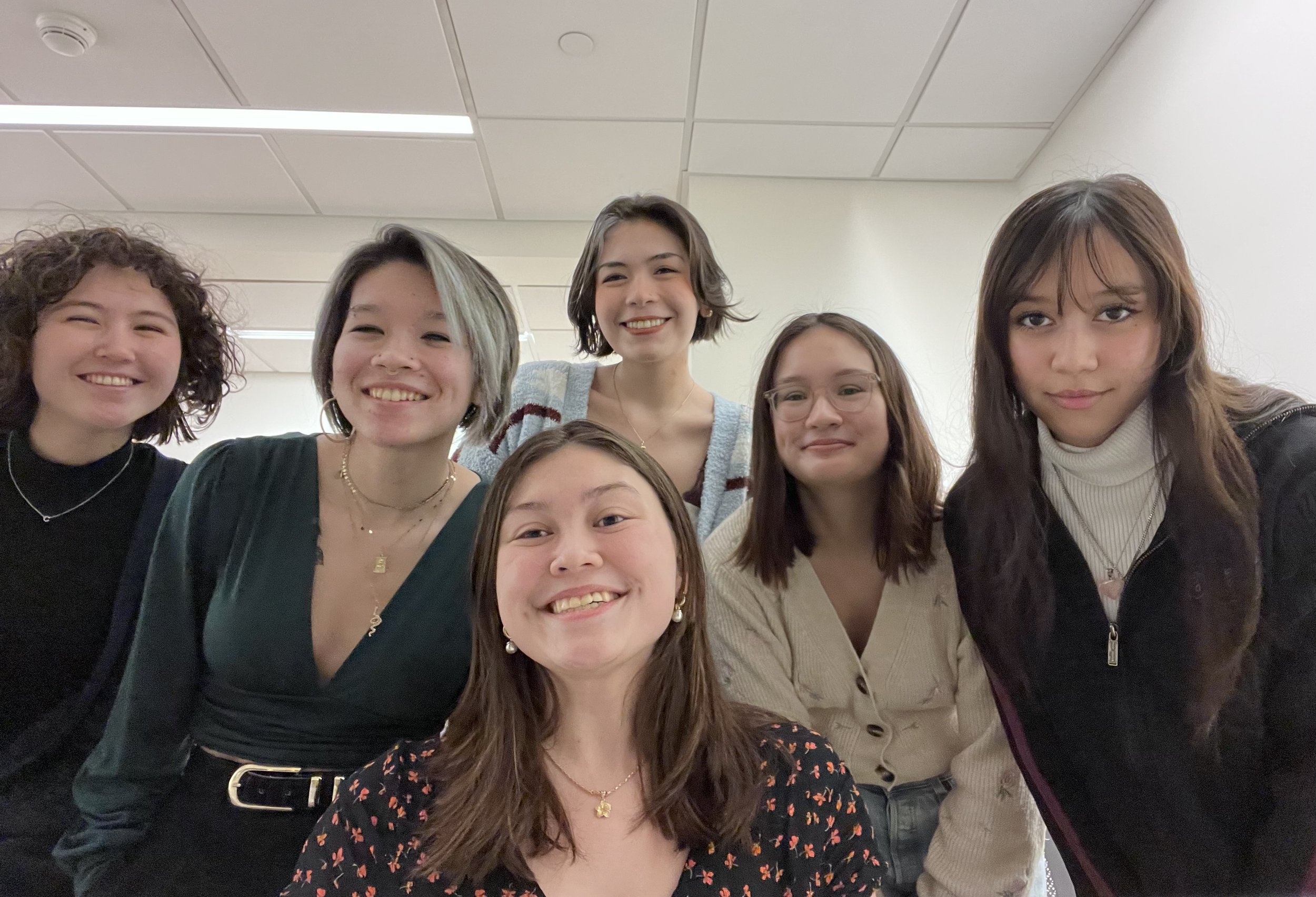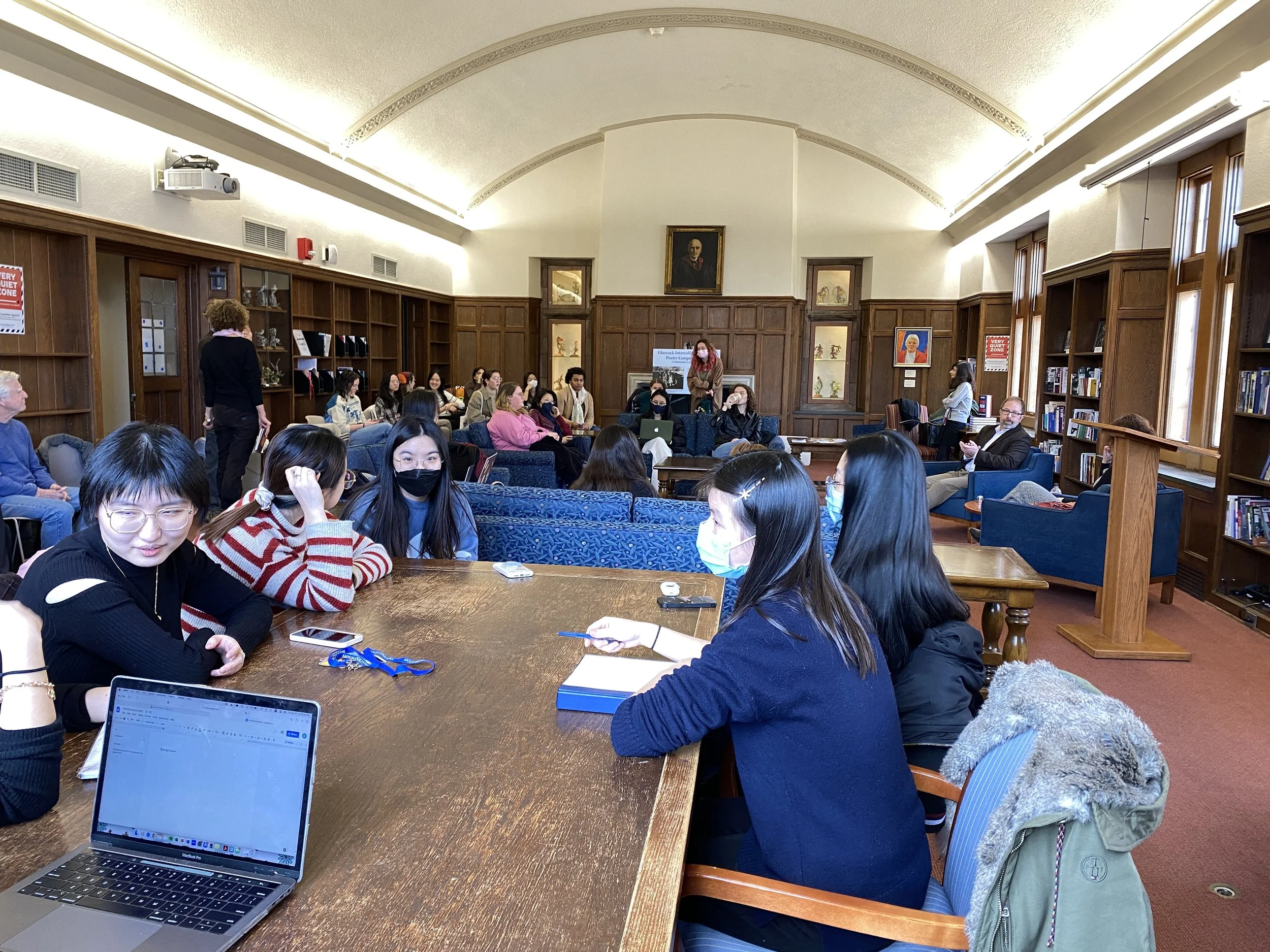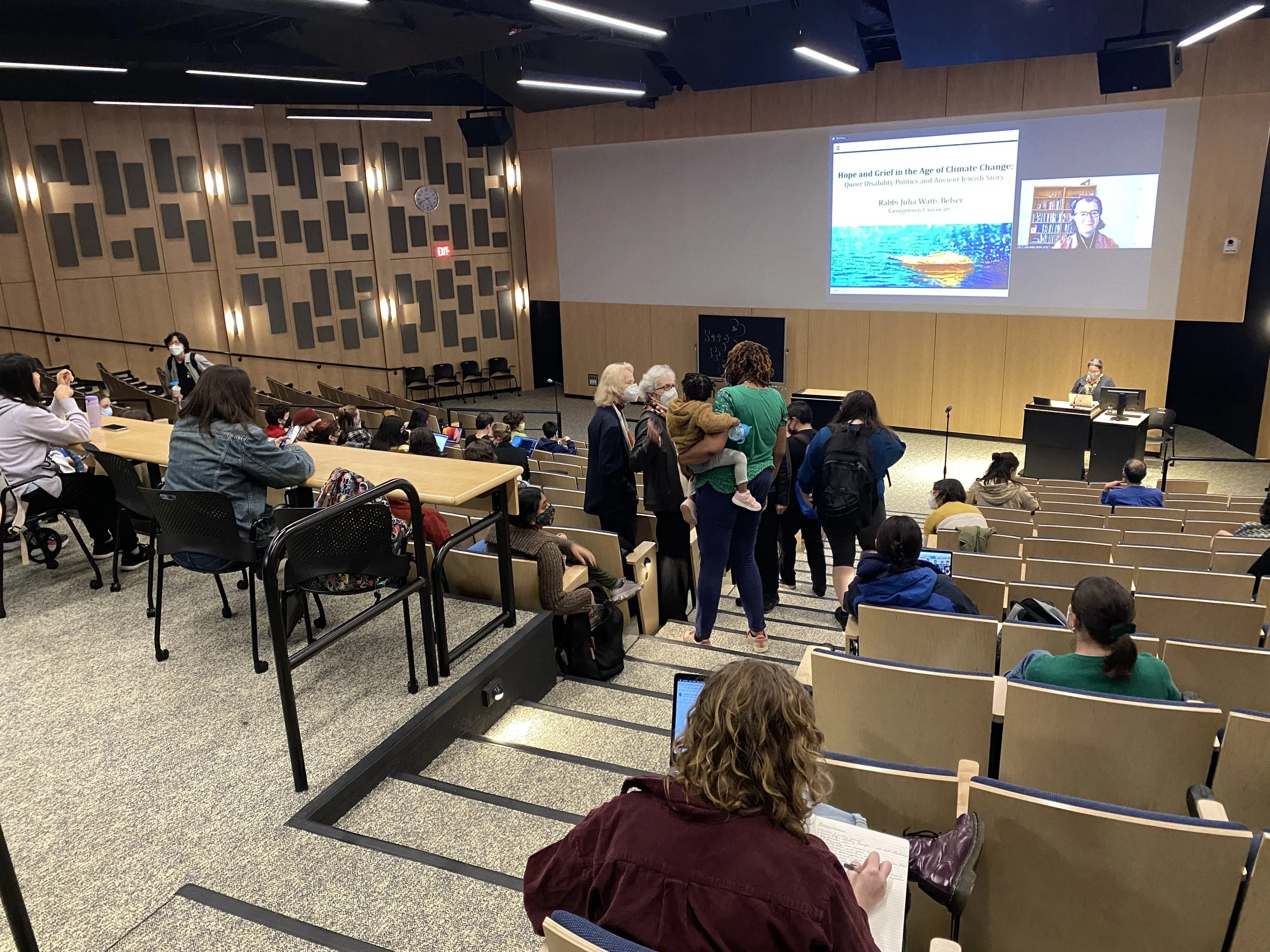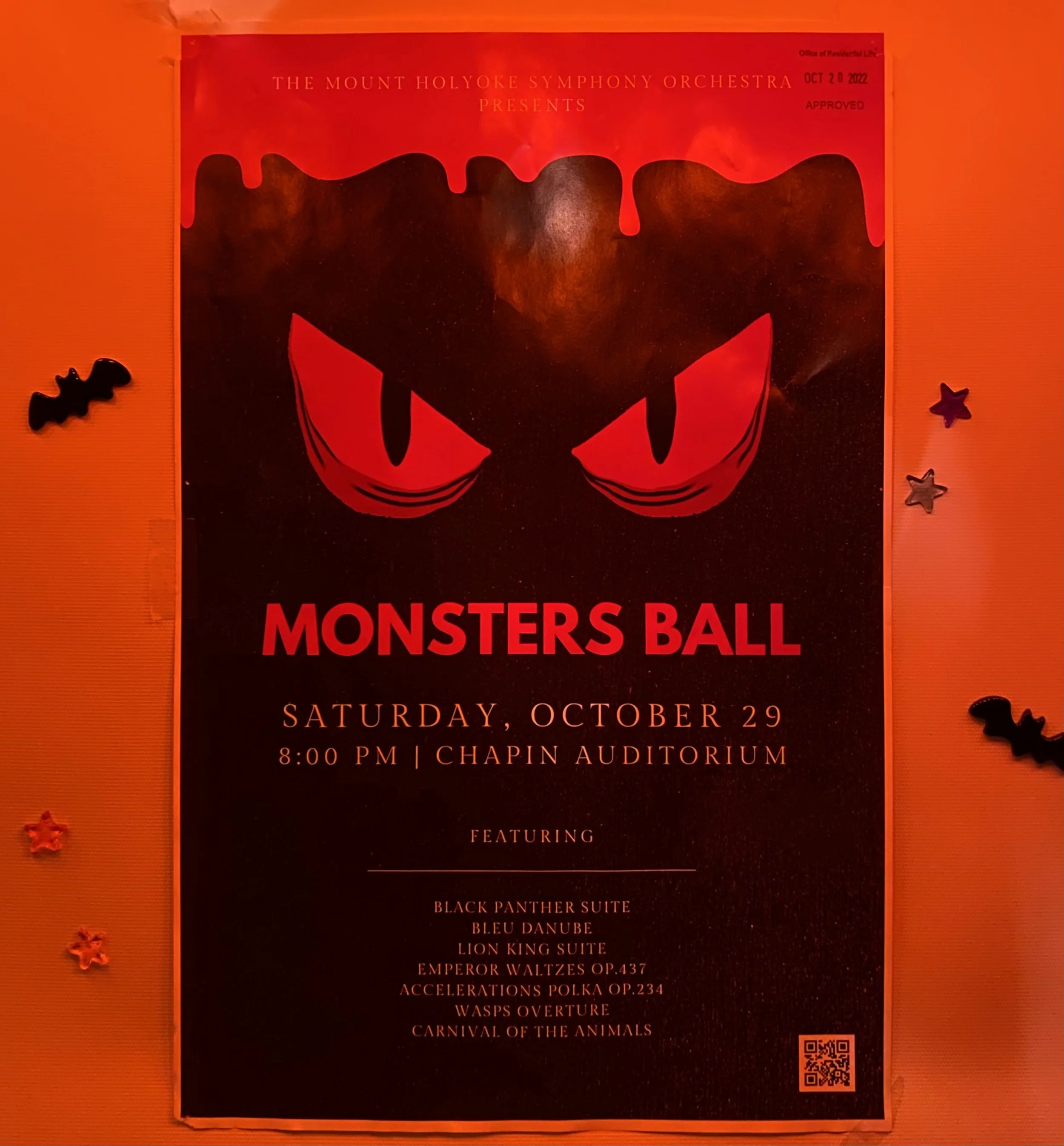The MISC board members, pictured above, pose for a photo. MISC creates community for mixed-race students while advocating for representation. Photo courtesy of Amanda Adams ‘25.
By Jesse Hausknecht-Brown ’25
Managing Editor of Layout & Features Editor
When Kat Sloop ’26 arrived at Mount Holyoke College this year, they were thrilled to find that there was a student organization dedicated to students who identify as multiracial or multiethnic. Coming from a predominantly white neighborhood and high school, Sloop, who identifies as half white and half Vietnamese, had struggled to find a place to explore her Vietnamese heritage or connect with other mixed-identity people. At Mount Holyoke, the Mixed Identity Student Collective provided her with that space.
“There were Asian associations and stuff, but being a mixed person going into those spaces is very nerve-wracking because … at least for me, I was like, ‘I’m not fully Asian.’ And so when I found out MISC was a thing here, I really wanted to jump at the opportunity,” Sloop said.
MISC aims to foster community between mixed students, increase visibility and representation for mixed people and work toward advocacy projects on campus. MISC was co-founded at the beginning of the 2022 spring semester by Amanda Adams ’25 and Chloe Berry ’24, who met and became friends at a mixer for mixed students put on by the Asian American Students in Action group.
“That was a really groundbreaking moment because it was the first time we felt recognized for our identities and we wanted to increase that space outside of just Asian American students,” Adams said.
Adams, similarly to Sloop, described feeling out of place in other identity-based student organizations, which was part of what led her to create MISC. It was important to Adams that there be a space for students who “often go unrecognized for their identities” to feel seen and heard. MISC’s first-ever event was a mixed mixer similar to the one where Adams and Berry met.
“[The first event] went really well. [Interim] President Tatum came and we had a lot of good feedback on what we were doing because many people, especially coming from their hometowns or their old schools, had never experienced an organization like ours,” Adams said. “Because outside of Mount Holyoke … these affinity spaces don’t really exist at all.”
Adams and Sloop both feel like MISC is a close-knit community and enjoy being able to be in a space with other students with similar shared experiences. At discussion-based meetings, members have the opportunity to introduce themselves and share something about their ethnic background before diving into question prompts.
“We touch on not necessarily unique experiences, but we try to hone in on the shared experiences … We talk about those differences, but … that communal experience is what we mainly try to emphasize,” Sloop said.
As the senator for MISC, Sloop goes to senate meetings every Tuesday to announce upcoming events and bring up concerns or issues if need be. Sloop’s favorite part of MISC is getting to talk and connect with other mixed students.
“There’s always that discussion aspect and we’re getting really deep into identity and what it means to be a mixed individual, and that’s my favorite thing,” Sloop said. “It’s so nice to sit down with people and even if they don’t come from a similar background as me, having those basic things to relate on. It’s really good knowing there’s other people out there.”
Looking into the future, Adams wants to continue to do advocacy work with MISC to increase visibility for mixed students at the College. Adams is currently planning on possibly doing a BOOM! panel later in the spring. Before then, MISC, which holds monthly events, is having a boba and painting event in March, and a screening of And/Or, a senior thesis film by AJ Johnson ’23 that explores the intersection of mixed-race identity and sexuality, in April.
“We’ve been looking into factors of ways in which we can not only increase representation but also have conversations with our community members on what more we can do for individuals with multiracial identities to feel … seen and heard,” Adams said.



















